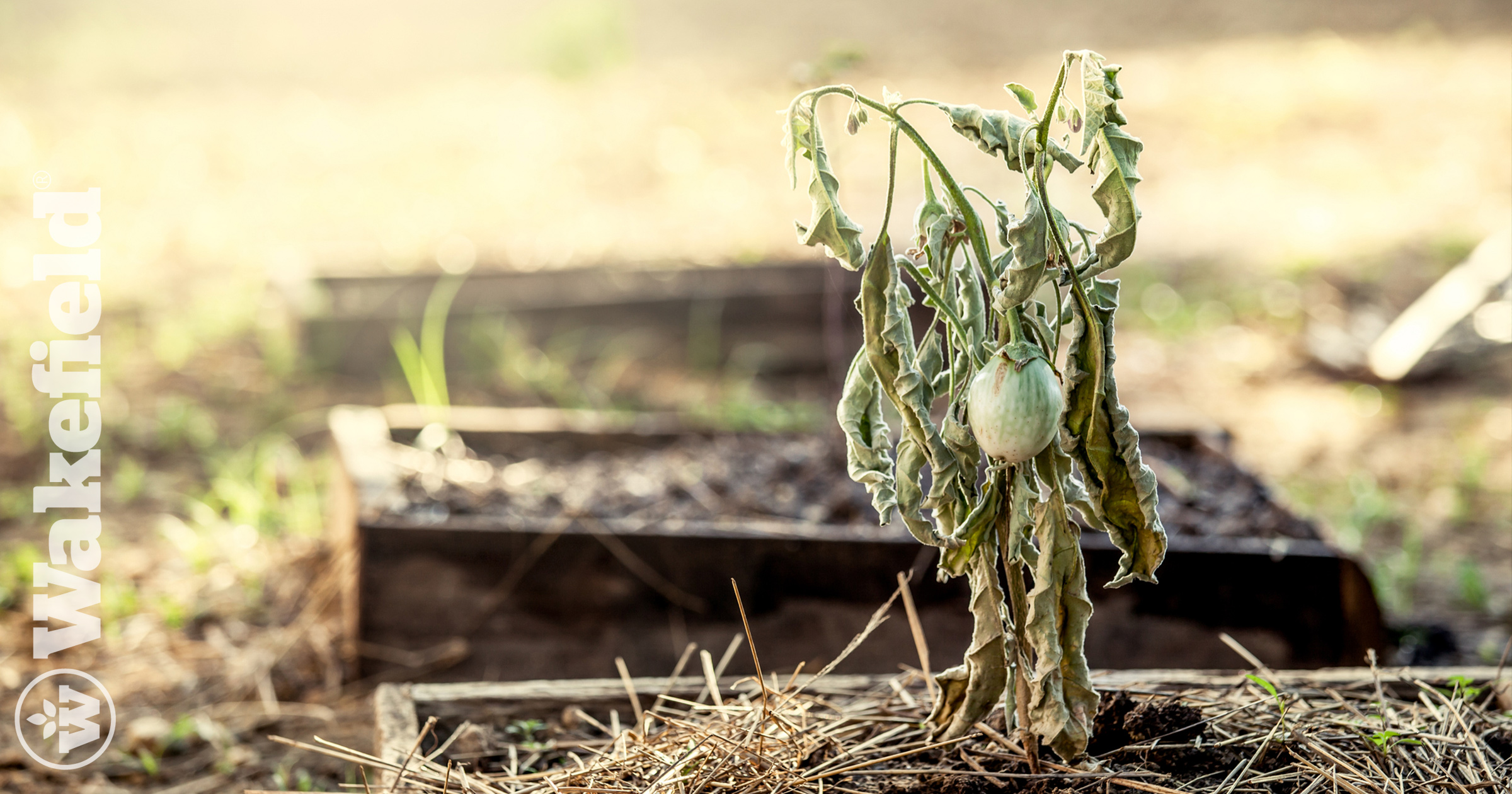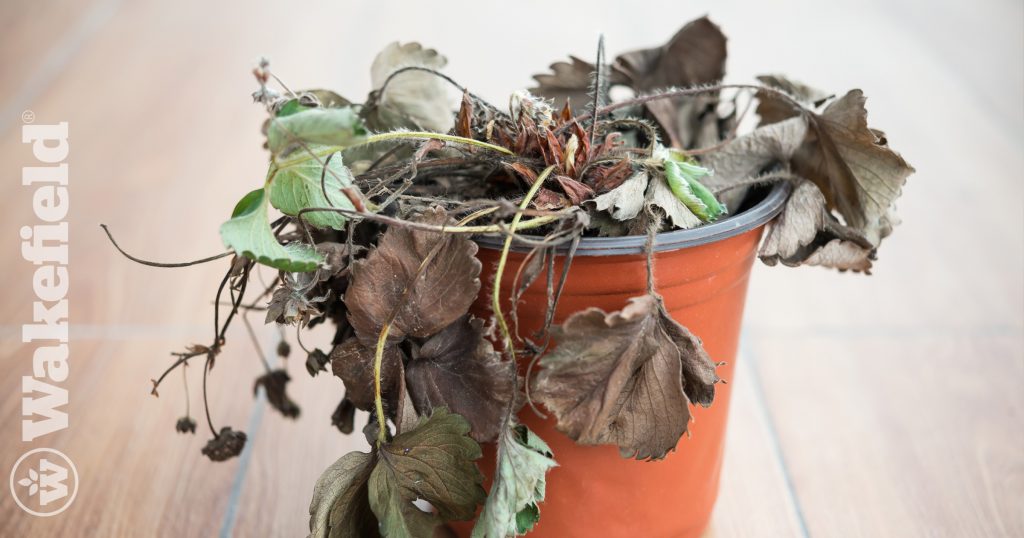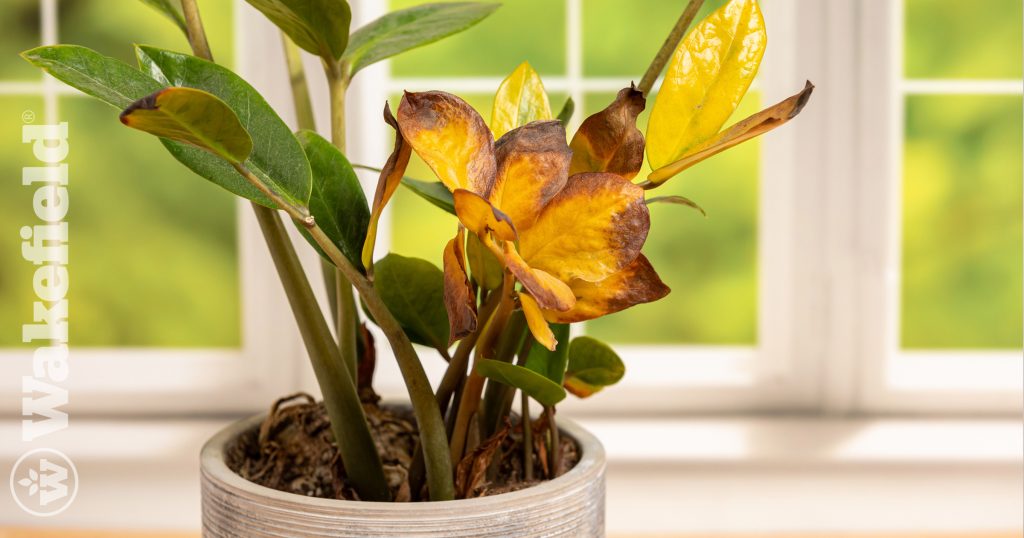How Biochar Fixes Poor Plant Growth

Seeing your plants in poor condition is often distressing. Instead of lush vegetation, brilliant flowers, or bountiful crops, your plants look like they are struggling. Getting to the bottom of this issue is the first step. Better soil begins with biochar. So, how does biochar affect plant growth?
Factors affecting poor plant growth include the soil not receiving the appropriate nutrients or lacking the right amount of water, light, and air. Soil structure and microbial activity also play a critical role in plant growth. A soil amendment such as Wakefield Biochar, an all-natural, certified organic soil conditioner, allows plants to flourish. Be sure to choose the right biochar for your planting needs.
Symptoms, Results, and Causes of Poor Plant Growth
Determining the reasons your plants are not doing well is essential. Here’s what to look for:
Symptoms
Suspect poor plant growth if any of the following symptoms are present:
- Discoloration–When leaves turn yellow, the culprit is usually poor drainage, insufficient watering, or compacted roots.
- Wilting–When plants do not receive sufficient moisture from their roots, wilting results.
- Deformities–Misshapen leaves, stunted leaves, roots, and similar deformities indicate growth problems.
- Holes in leaf–Pests, including worms and mites, can cause leaf holes.
- Yield reduction–Plants in poor soil cannot produce bountiful harvests.
Broader implications
- Disrupted pollination–One of the significant causes of disrupted pollination in recent decades is agricultural practices featuring heavy use of chemical fertilizers and pesticides.
- Reduced biodiversity–When the soil’s microorganisms cannot receive their necessary nutrients, soil biodiversity is greatly reduced.
- Economic consequences for the agricultural sector–Poor plant growth brings economic consequences. Lower yields mean less income for farmers.
Causes
- Soil compaction and reduced aeration–Compacted soils lack good soil structure. Compaction reduces the air space necessary for plants to obtain water and nutrients.
- Nutrient imbalances–Nutrient deficiencies and imbalances are a primary cause of poor plant growth.
- Soil microflora impacted by fertilizers and pesticides–Beneficial soil microbes are a critical part of the soil ecosystem. Chemical fertilizers and pesticides can destroy these microflorae.
- Pests, diseases, and environment–Pests and diseases and an environment affected by climate change all affect plant health and growth.
Improving Plant Growth with Biochar
Biochar has been used since ancient times and is the result of biomass subject to pyrolysis. It involves heating organic material at a high temperature in an oxygen-free environment.
What does biochar do for plants? It boosts plant growth in a variety of ways, including the following:
- Improved soil aeration and reduced compaction–Proper soil aeration is crucial for healthy plants. Compacted soils do not aerate well. Biochar improves soil aeration by lowering density. Biochar particles are less dense than soil particles. Over time, biochar can reduce density by decreasing the lack of space between particles and reducing compaction.
- Enhanced water retention and nutrient availability–Soils can retain more water with biochar. This is especially true for sandy and silty soils. Plants can do well even during prolonged dry periods. Biochar’s porous nature allows it to carry nutrients to plants effectively. Biochar also increases soil alkalinity levels and reduces acidity.
- Bolstered beneficial microbial communities in soil–Biochar promotes beneficial fungi and other microbes, which add to the soil’s nutrient content and biodiversity.
- Plant pathogen suppression–Biochar can suppress nematodes and insect pests.
What to keep in mind
All biochar is not the same. At Wakefield BioChar, our products derive from natural wood scraps from paper mills that would be discarded or sent to landfills. It would decompose, releasing harmful greenhouse gases. However, this organic waste is reclaimed and turned into an incredible soil conditioner.
Biochar is typically a small granule, and if allowed to dry out, the granules are susceptible to blowing away on a windy day. If the biochar has a reasonable moisture level you can be less concerned with the wind conditions.
Different biochar applications are needed for different types of soil. For instance, heavy clay soils lack good drainage and aeration. Clay or degraded soils may require a higher percentage of biochar than is recommended for healthier soils. Before applying it, have your soil tested through a DIY kit or send samples to your local county agricultural extension agent.
Learn More from Wakefield BioChar
At Wakefield BioChar, we are passionate about soil health. Learn more about biochar and what it can do for your lawn, trees, shrubs, garden, or crops. Remember that once applied, biochar stays in the soil for decades, if not centuries.
When you use biochar as a soil amendment, you are doing more than just improving the soil. It is effective at sequestering carbon within the soil and keeping it stable. The manufacturing of biochar converting decomposing biomass to a fixed carbon. This process reduces the emission of greenhouse gases and helps limit the disastrous effects of climate change.
Better Soil. Better World. Happy planting!







